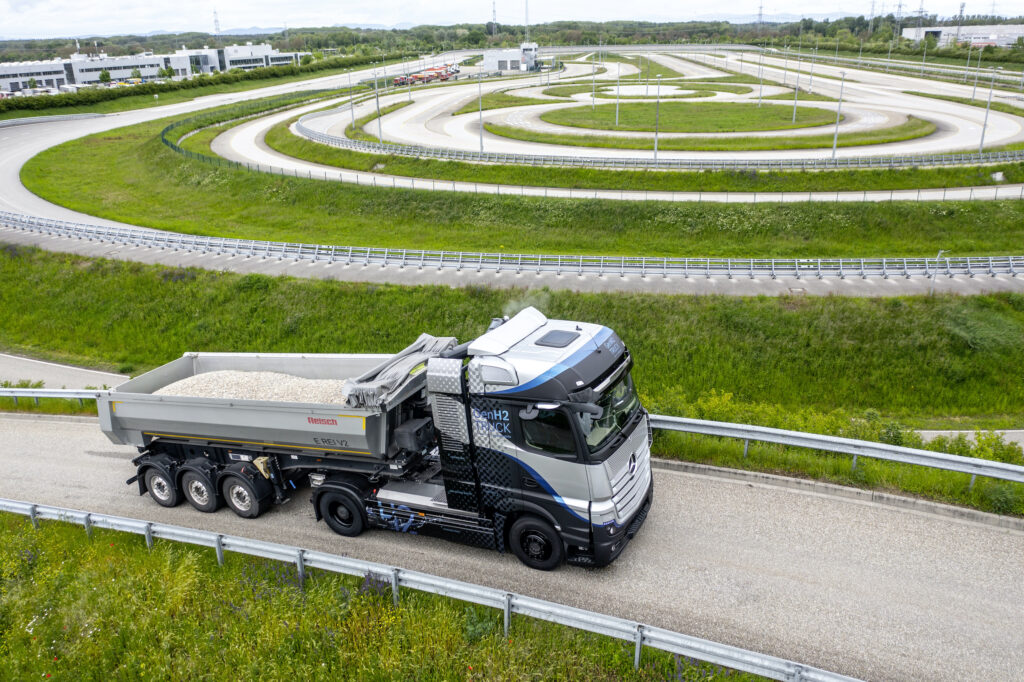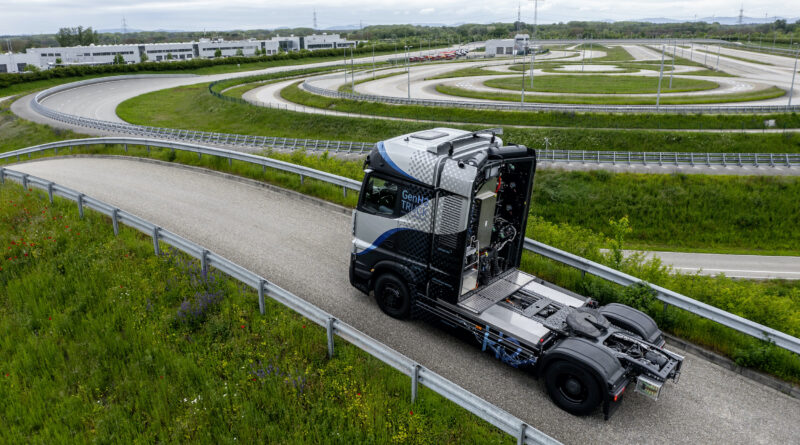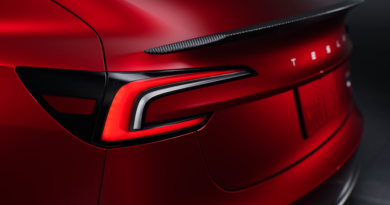Trucking with gas… Mercedes-Benz testing fuel-cell electric semi
Track trials of the first prototype of the Mercedes-Benz GenH2 has begun. While the hydrogen fuel-cell electric heavy-duty truck is presently restricted to the proving ground, it’s planned to move to public-road testing later in the year and customer trials in 2023.
Mercedes-Benz says it will begin full scale production of the GenH2 in 2027, and is aiming to achieve driving ranges of up to 1000km without refuelling stops.
It’s another sign that hydrogen fuel cells are shaping as the technology most likely to replace diesel engines for long-haul road transport.
Daimler, the parent company of Mercedes-Benz, recently signed a deal with Volvo Group to work together on development of hydrogen fuel-cell systems for long-haul trucks. The new joint venture company they created is called Cellcentric.
Both companies are big-time in the truck-making business. Daimler owns the Freightliner, Western Star and Fuso brands, as well as Mercedes-Benz, while Volvo Group has Mack, UD and Renault Trucks.
The chief of Daimler trucks believes battery electric trucks have a role to play in the decarbonisation of goods transport, but sees hydrogen as the better solution for long-distance road freight.

“We want to offer our customers the best locally CO2-neutral trucks, powered by either batteries or hydrogen-based fuel-cells, depending on the use case,” said chairman Martin Daum.
“The hydrogen powered fuel-cell drive will become indispensable for CO2-neutral long-haul road transport in the future.”
The GenH2 is being designed to deliver the same 1.2 million-km and 10-year lifetime of use as conventional Mercedes-Benz trucks. The prototype is already hauling payloads up to 25 tonnes on the test track, for a gross vehicle weight of around 40 tonnes. The 2027 production version of the GenH2 will have identical weight and payload specifications.
While the GenH2 prototype runs on hydrogen gas stored in high-pressure tanks, Daimler Trucks plans to switch to low-pressure liquid hydrogen tanks by the end of the year. Liquid hydrogen needs to be stored at ultra-low temperature, but the heavily insulated tanks are smaller and much lighter than those required for the same amount of fuel in gaseous form.
The widespread adoption of hydrogen for trucks would drive the growth of a widespread network to distribute the fuel. And regular hydrogen refuelling stations on major routes would help make fuel-cell electric cars practicable for long-distance driving.




